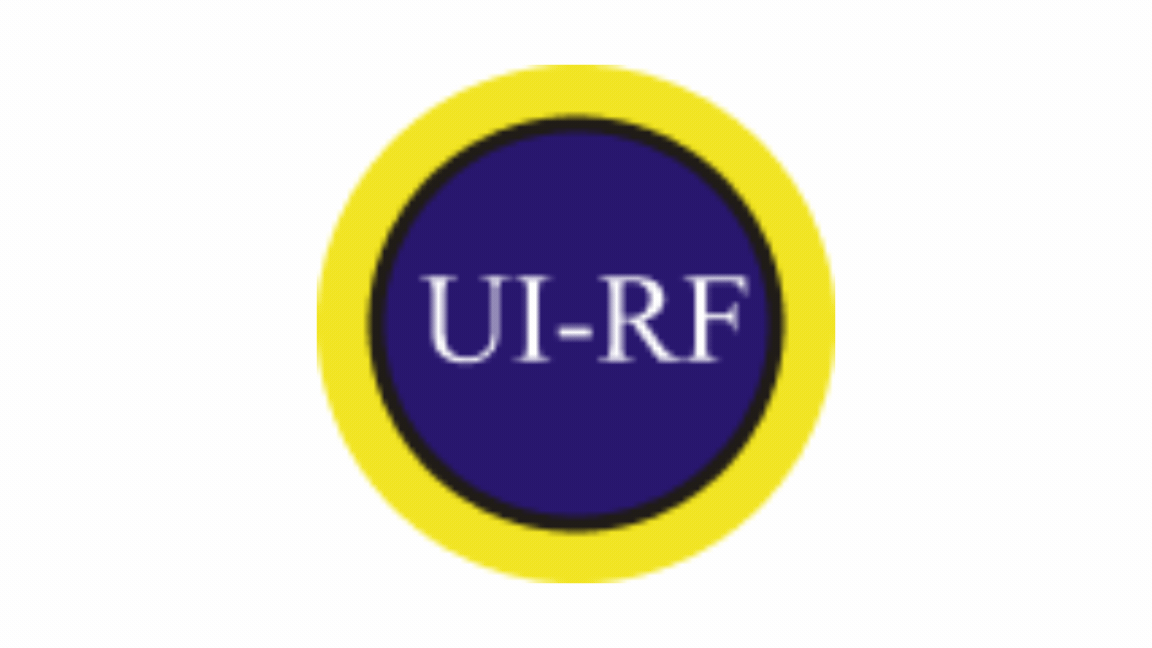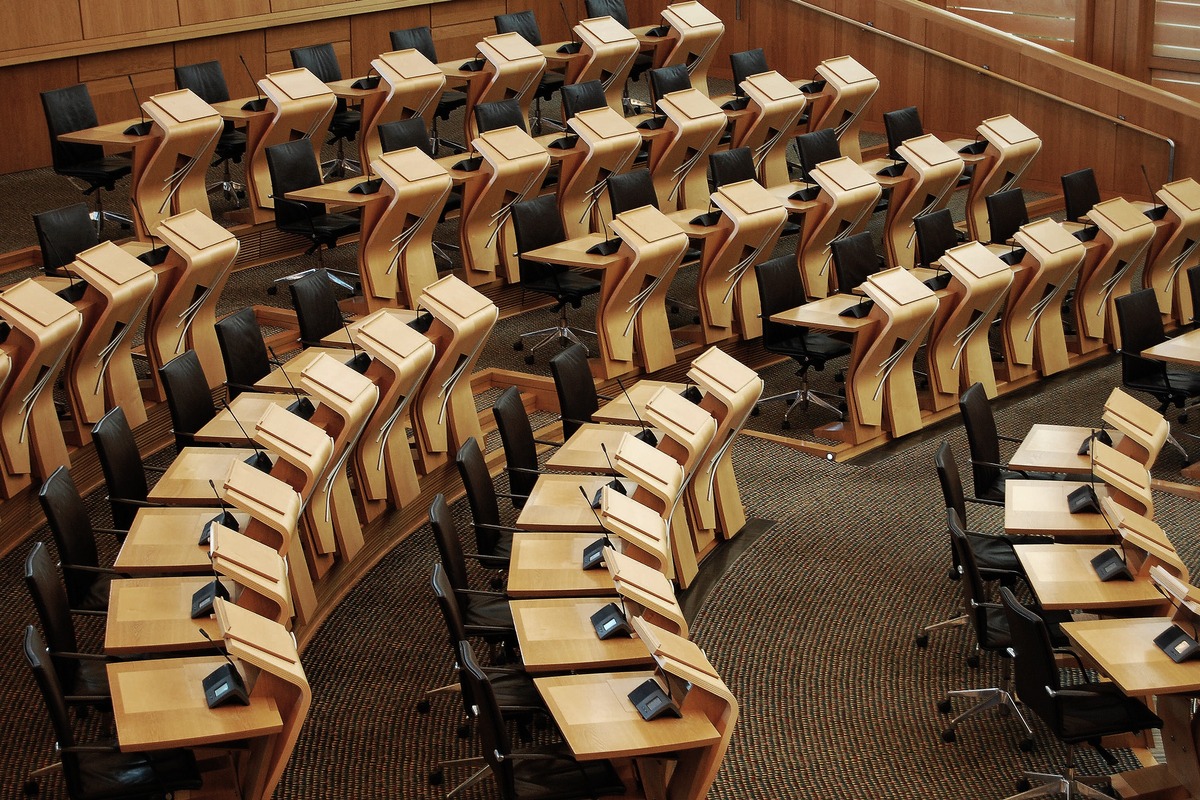“The University of Ibadan Facilitating ‘Knowledge Economy’ for National Development” Sustainable national development in emerging economies benefits from a strong cornerstone predicated on the ability to translate new knowledge generated from research to innovations, strategies and evidence for pragmatic policies. The platform for translating research to innovations represents a critical component for sustainable socioeconomic development of emerging economies. The successful economies of Brazil, Russia, India, China and South Africa (The BRICS countries) continue to grow despite challenges in global economic environment because of the advantages and dividends of translating research to innovations that generate new products and novel strategies guiding policies for national development. The capacities and platforms developed by these countries for the translations of research to innovations provide a resilient framework for the adoption of knowledge economy for sustainable development. These platforms are predicted on strong collaborations between universities, research institutions and the private sector working together to facilitate critical contributions in efforts to translate new knowledge and research outputs to innovations and novel products. More importantly, the success of these countries provides evidence that the capacity to translate research to innovations for promoting sustainable contributions in Agriculture, Artificial Intelligence (AI), Commerce, Energy, Health, Infrastructure and Security sectors is critical for national development. The University of Ibadan over the past ten years continues to invest in efforts to strengthen research platforms at the university. The objective is to identify pragmatic options to bring together the universities, research institutions, private sector and industries to create a formidable platform for the adoption of knowledge driven economy in Nigeria.
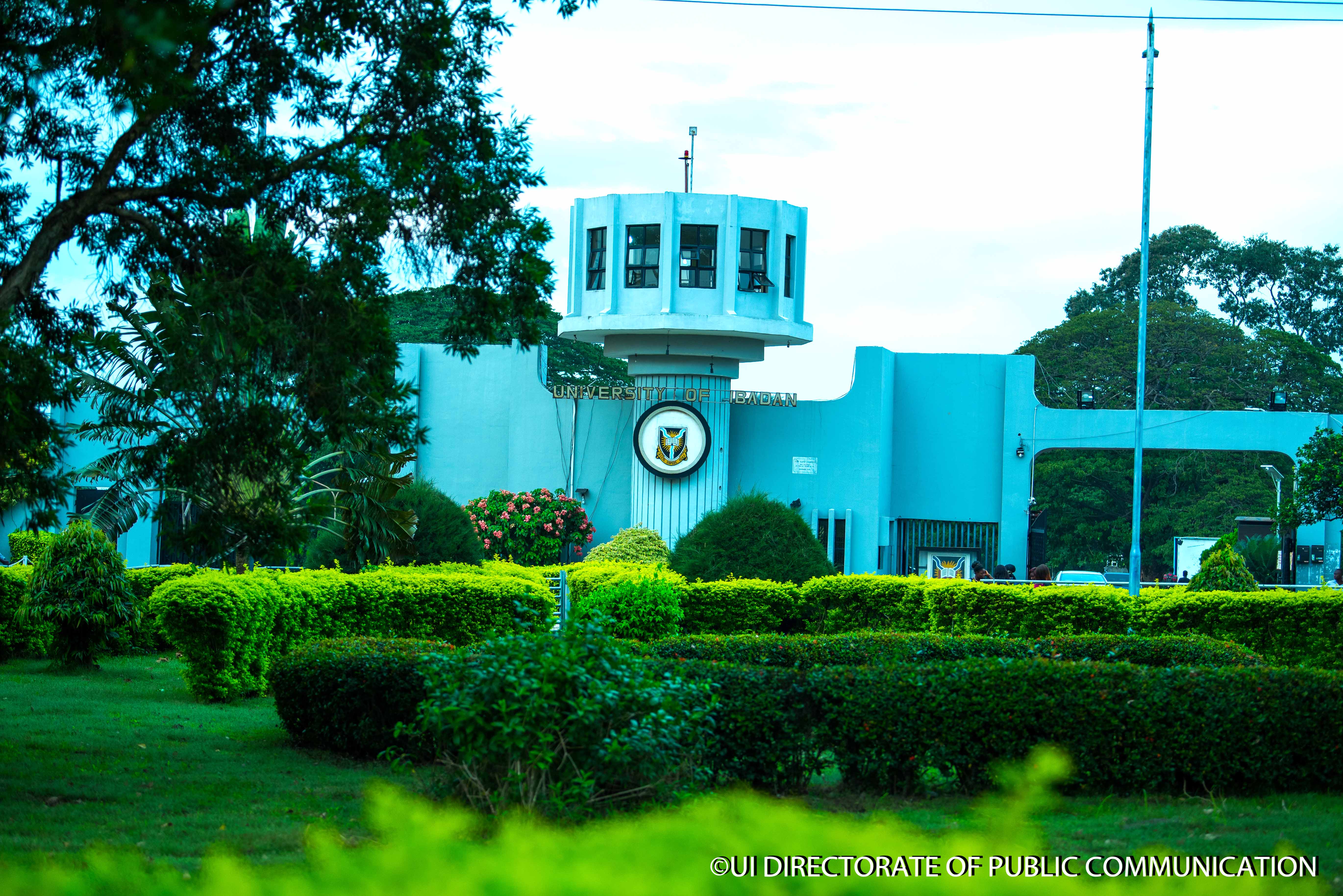 Today, Nigeria has over one hundred-fifty universities, several research institutions and a resilient private sector with a significant number of experts who can contribute to strengthening the economy with dividends of research. The University of Ibadan alone has over 1,500 academic staffs. A large number of the academic staff at the University of Ibadan are actively engaged in research and publishing over 700 research papers in peer reviewed journals every year. The academic and research institutions in Nigeria with 20,000 internationally recognized researchers were credited with 3952 publications in peer reviewed journals in 2011. Their outputs were second only to counterparts in South Africa in a 2011 review of the publishing landscape in Africa (Nature 474, June 2011). The research endeavors of these universities and the private sector in Nigeria represent a treasure trove that can bring innovations to underwrite the economic development of Nigeria. The University of Ibadan Research Foundation (UI-Research Foundation on behalf of the University of Ibadan has developed the framework for the national “Think Tank” is to use the leadership of the University of Ibadan to facilitate collaborations among academic institutions, private sector and industries in efforts to stimulate translations of new knowledge and research findings to innovations, new strategies and evidence for policies in Nigeria.
Today, Nigeria has over one hundred-fifty universities, several research institutions and a resilient private sector with a significant number of experts who can contribute to strengthening the economy with dividends of research. The University of Ibadan alone has over 1,500 academic staffs. A large number of the academic staff at the University of Ibadan are actively engaged in research and publishing over 700 research papers in peer reviewed journals every year. The academic and research institutions in Nigeria with 20,000 internationally recognized researchers were credited with 3952 publications in peer reviewed journals in 2011. Their outputs were second only to counterparts in South Africa in a 2011 review of the publishing landscape in Africa (Nature 474, June 2011). The research endeavors of these universities and the private sector in Nigeria represent a treasure trove that can bring innovations to underwrite the economic development of Nigeria. The University of Ibadan Research Foundation (UI-Research Foundation on behalf of the University of Ibadan has developed the framework for the national “Think Tank” is to use the leadership of the University of Ibadan to facilitate collaborations among academic institutions, private sector and industries in efforts to stimulate translations of new knowledge and research findings to innovations, new strategies and evidence for policies in Nigeria.
It is anticipated that the effective dissemination and utilization of the outputs of the “Think Tank” would provide a sustainable vehicle for the contributions of the academia, research institutions and the private sector towards sustaining the social and economic development of Nigeria. The first phase of the platform is designed to strengthen and sustain research contributions of Agriculture, Artificial Intelligence (AI), Commerce, Energy, Health, Infrastructure and Security sectors to economic development of Nigeria.
PROFESSOR ABEL I. OLAYINKA,FAS
Vice – Chancellor, University of Ibadan, Ibadan
UI-RF Board Chairman
The Rt. Hon. Chevalier Uduimo J. Itsueli
The Board of UI-Research Foundation, at its inception in 2014, set out to accomplish important landmark tasks to provide leadership and contributions to efforts to retain the position of the University of Ibadan as the first and premier institution in Nigeria. The objectives of the landmark initiatives also include strengthening the contributions of academia at the University of Ibadan to socioeconomic development of Nigeria. The University of Ibadan Research Foundation in partnerships with leading private sector institutions, government agencies, industries and international organisations created the National Think Tank for the translation of research outputs to innovations, strategies and evidence for policies as part of these landmark objectives. The aim of the National Think Tank is to provide direction on our national ethos especially efforts to meet the challenges in economic development. The inauguration of the Think Tank on 16th November 2017 during the Convocation Ceremony of the University of Ibadan marked the beginning of this new frontier.
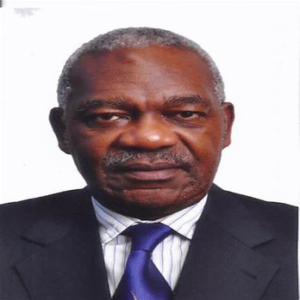 Today we applaud this achievement with the inauguration of the Council and collaborations with national and international partners that will provide oversight for the Think Tank in order to make it a sustainable contribution to national development.
Today we applaud this achievement with the inauguration of the Council and collaborations with national and international partners that will provide oversight for the Think Tank in order to make it a sustainable contribution to national development.
The Think Tank initiatives is designed in the strategic approaches of the University of Ibadan Research Foundation to enhance efforts on national “intelligence” and creation of a platform to promote research and translations of research results directed at applications that will meet societal needs. The sustainability of this platform will be ensured by bringing together experts from institutions, civil societies and the private sector to carefully use research outputs to provide evidence and craft options for policy narratives useful for policy makers at the state and national levels. The value of the Think Tank is expected to increase as they identify challenges in policies, advances in research, knowledge gaps, implications of research findings for evidence for policy and applications to generate innovations. This effort is ultimately meant to promote and sustain the development of relevant research, achieve research innovation and enhance the capacity of institutions, research leaders, the private sector and policy makers to work towards facilitating evidence-based policies that will promote wealth creation and socioeconomic development in Nigeria.
The Think Tank initiative aims to become the reference centre of evidence for policy imperatives that are sustainable and reliable for continuous socioeconomic development. This will be accomplished by setting up continuous activities and frameworks in the following key areas:
- Knowledge acquisition: Monitoring of the internationally, regionallyand nationally most relevant research and evidence for innovations useful for policies and assembling a bibliographic database.
- Innovation syntheses: Reviewing and synthesizing research findings that are relevant to policies at global, regional, and country levels and specific for efforts to meet national challenges.
- Agenda setting: Identifying knowledge gaps and prioritizing future research efforts useful to meet gaps, development challenges national debates and engagement of the private sector on uptake and applications of innovations.
- Stakeholders Consultation and Engagement: Convening and facilitating discussions, debates amongst broad spectrum of stakeholders in order to obtain inputs for finalization of the analysis and production of policy briefs. Use the forum as a mechanism to promote adoption of platforms for knowledge economy in Nigeria.
- Policy Imperatives: Preparing policy briefs based on the syntheses and analyses of the research outputs. Disseminating such policy briefs through the UI-Research Foundation website and through internationally peer-reviewed articles.
The long-term objective of the Board of the University of Ibadan Research Foundation is to make the Think Tank a National Evidence for Policy Reference Platform (NEPRP). The Board will continue to work with the University of Ibadan and seek other stakeholders’ contributions and engagement to sustain this laudable project.
The Rt. Hon. Chevalier Uduimo J. Itsueli, KSG, OON, DSC
Chairman, Board of UI-Research Foundation
National Think Tank to make Research Count for Socioeconomic Development in Nigeria
The National Think Tank provides a platform for the promotion and translations of research findings by expert sat academic and research institutions, private sector, industries and civil society to innovations, evidence and strategies for pragmatic policies in Nigeria. The Think Tank platform is designed to facilitate adoption of ‘knowledge economy’ by State as well as National policy makers in Nigeria. It is anticipated that the effective dissemination and utilization of the outputs of the National Think Tank would create a reliable vehicle for contributions of the academia, research institutions and the private sector to efforts on sustainable social and economic development in Nigeria.
 The University of Ibadan Research Foundation developed and launched the National Think Tank on 16th November, 2017 during the Convocation Ceremonies of the University of Ibadan. The framework for the National Think Tank is predicated on continuous contributions of all stakeholders across Nigeria to the context and efforts to build a solid foundation for conscientious utilization of research outputs for national development. The National Think Tank platform has been developed to seek contributions from a broad spectrum of stakeholders generating new knowledge, implementers of programs, civil societies and decision makers to produce a unique overview of research findings, challenges to national development. The platform’s aim is to produce authoritative guidelines based on careful and inclusive evaluation by leaders and experts across the nation. A broad spectrum of stakeholders has been assembled to provide inputs, guidance and oversight in order for the Think Tank to produce policy options based on integrative overview of national development agenda. The reports of the Think Tank which will be continuously collated and routinely presented to larger stakeholders for contributions, debates, deliberations and dialogue are expected to make it relevant to national development and serve as a credible National Evidence for Policy Reference Platform (NEPRP).
The University of Ibadan Research Foundation developed and launched the National Think Tank on 16th November, 2017 during the Convocation Ceremonies of the University of Ibadan. The framework for the National Think Tank is predicated on continuous contributions of all stakeholders across Nigeria to the context and efforts to build a solid foundation for conscientious utilization of research outputs for national development. The National Think Tank platform has been developed to seek contributions from a broad spectrum of stakeholders generating new knowledge, implementers of programs, civil societies and decision makers to produce a unique overview of research findings, challenges to national development. The platform’s aim is to produce authoritative guidelines based on careful and inclusive evaluation by leaders and experts across the nation. A broad spectrum of stakeholders has been assembled to provide inputs, guidance and oversight in order for the Think Tank to produce policy options based on integrative overview of national development agenda. The reports of the Think Tank which will be continuously collated and routinely presented to larger stakeholders for contributions, debates, deliberations and dialogue are expected to make it relevant to national development and serve as a credible National Evidence for Policy Reference Platform (NEPRP).
The umbrella of leadership created to make the products of Think Tank authoritative and to achieve these objectives includes:
- A Council of leading experts to provide oversight.
- Partnerships with national institutions and international organizations working in Nigeria to host Special Thematic Working Groups on economic sectors.
- Leadership Forum convened both in Nigeria and among diaspora, and
- Virtual Community Reference Group to discuss and make recommendations on the framework for the implementation and sustainability of the National Think Tank.
Credibility Based on Partnerships with Specialized National Institutions and International Organization working in Nigeria
- The Chartered Institute of Bankers of Nigeria (CIBN) – Commerce
- The Bank of Infrastructure – Infrastructure
- The International Institute for Tropical Agriculture (IITA) – Agriculture
- The Nigeria Institute of Medical Research – Health
- The Institute for Peace and Strategic Studies – Security
Discussions are ongoing with leading institutions to host the STWGs for Artificial Intelligence (AI), and Energy.Stakeholders Consultations
The overall analysis from Special Thematic Working Groups (STWG) are presented for consultations and inputs by a comprehensive spectrum of stakeholders prior to its dissemination in various communication media, including peer reviewed journals. Each report will be reviewed by independent external experts. The summaries of the analysis jointly produced with the Think Tank Council and the UI-Research Foundation will be used to prepare policy briefs designed to provide road maps on pragmatic policies options for national development. These reports and summaries of the STWG are designed to provide evidence-based consensus on strategies, innovations and policy imperatives emanating from the comprehensive commissioned studies and analysis.
 A summary jointly produced by the STWG Committee, the hosting institutions, the Council for the ‘Think Tank’ and the UI-Research Foundation will be used to prepare policy briefs. The policy briefs are designed as tools to provide road maps for decision makers on evidence-based policy to promote contributions of Agriculture, Artificial Intelligence (AI), Commerce, Energy, Health, Infrastructure and Security to national development. Contributions made by the ‘Think Tank’ are expected to be continuously published as policy briefs and on the UI-Research Foundation-supported global knowledge management electronic portal.
A summary jointly produced by the STWG Committee, the hosting institutions, the Council for the ‘Think Tank’ and the UI-Research Foundation will be used to prepare policy briefs. The policy briefs are designed as tools to provide road maps for decision makers on evidence-based policy to promote contributions of Agriculture, Artificial Intelligence (AI), Commerce, Energy, Health, Infrastructure and Security to national development. Contributions made by the ‘Think Tank’ are expected to be continuously published as policy briefs and on the UI-Research Foundation-supported global knowledge management electronic portal.
The reports of the ‘Think Tank’ will be collated and routinely presented to larger stakeholders’ forum for contributions, debates, deliberations and dialogue that would make it relevant to national development and serve as a National Evidence for Policy Reference Platform (NEPRP).
Professor Ayoade MJ. Oduola
Director
The Council for National Think Tank
 Senior and accomplished academics, national professional officers, technical, business and administrative leaders have been invited from universities, research institutions, national agencies and the media to constitute a Council for the Think Tank. The Council, consisting of 7-9 members provides oversight for the activities and sustainability of the National Think Tank. The Council is led by two Co-Chairpersons who are seasoned leaders with high national and international reputation and are well recognized in their fields of expertise and contributions to national development. The functions of the Council are to:
Senior and accomplished academics, national professional officers, technical, business and administrative leaders have been invited from universities, research institutions, national agencies and the media to constitute a Council for the Think Tank. The Council, consisting of 7-9 members provides oversight for the activities and sustainability of the National Think Tank. The Council is led by two Co-Chairpersons who are seasoned leaders with high national and international reputation and are well recognized in their fields of expertise and contributions to national development. The functions of the Council are to:
- Provide leadership, advocacy and oversight for the Think Tank Initiative.
- Identify thematic critical areas of national economy with potential high impacts for development that can benefit from analysis and generation of policy briefs.
- Constitute Special Thematic Working Groups (STWG) hosted by national institutions and international partners working in Nigeria to develop and produce analysis and policy briefs on selected thematic subjects of impact.
- Organize stakeholders’ consultations on the topics, findings of the STWG, endorsement and finalization of policy briefs to be hosted by institutions in Nigeria.
- Develop platforms for the dissemination and uptake of the content and context of the analysis and policy briefs.
- Organize fund raising platforms to support activities of the Think Tank.
- Develop frameworks for capacity building initiatives with partners in government and private sector using the outputs of the Think Tank as pathways to foster understanding of ‘Knowledge Economy’ in Nigeria.
- Create and provide oversight for a National Evidence for Policy Reference Platform (NEPRP) generated from the Think Tank.
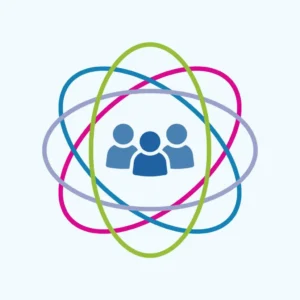 The Special Thematic Working Groups (STWG) and Partnerships with Hosting Institutions.
The Special Thematic Working Groups (STWG) and Partnerships with Hosting Institutions.
The success of the National Think Tank is promoted by the creation of Special Thematic Working Groups (STWG) to serve as the ‘driving engine’ of the ‘Think Tank’. The STWG is made up of experts from academia, research institutes, civil society, media and the private sector in selected thematic fields of the economy. The numbers of STWG will vary as the scope of the ‘Think Tank’ expands over the years. Seven primary STWGs have been created at the inception of the ‘Think Tank’ to focus on Agriculture, Artificial Intelligence (AI), Commerce, Energy, Health, Infrastructure and Security. Each Special Thematic Working Group will be hosted on agreement by specialized institutions, international organizations working in Nigeria or private companies actively engaged in the thematic area of the working group in Nigeria. The STWG is led by a team of 5-7 experts (STWG Committee) and coordinated by two leaders selected by the hosting institution and the University of Ibadan. The pioneer seven STWGs on Agriculture, Artificial Intelligence (AI), Commerce, Energy, Health, Infrastructure and Security are hosted by
The Chartered Institute of Bankers of Nigeria (CIBN) – Commerce
The Bank of Infrastructure – Infrastructure
The International Institute for Tropical Agriculture (IITA) – Agriculture
The Nigeria Institute of Medical Research – Health
The Institute for Peace and Strategic Studies – Security
We are discussions with leading institutions to host the STWGs for Artificial Intelligence (AI), and Energy. The STWG is mandated to coopt expert teams (3-5 renowned experts) to gather relevant information, produce a succinct summary and a comprehensive and systematic review of the research findings, analyze existing evidence and evaluate its relevance in the contexts of:
- Challenges in the thematic area and its contributions to national development.
- Highlighting news and significant scientific advances and opportunities from research to address the national challenges.
- Identifying critical research gaps, human capital and pathways to strengthen applications of proposed solutions.
- Providing summary and guidance on priority areas with relevant information for innovations, strategies and evidence to guide policies for national development.
The STWG committee is expected to review the reports of the coopted experts and provide guidance and oversight in finalizing the reports, each final analysis is expected to provide:
- Succinct summaries of research findings useful in addressing the economic challenges in the identified area.
- Road map on education, strategies and policy options and imperatives to overcome the economic challenges.
- Framework to strengthen the value of knowledge and public acceptance of basic principles in the field as platform to enhance the adoption of ‘knowledge economy’ in Nigeria.

Profile for Members of Council
PROFESSOR ISAAC OLAWALE ALBERT
CO-CHAIRMAN
![]() Isaac Olawale Aibert is a Professor of African History, Peace and Conflict Studies at the University of Ibadan (Nigeria) where he was the Director of the institution’s Institute of African Studies from August 2010 to August 2013. He is a specialist in conflict analysis, early warning monitoring, and peace progress planning. He is a conflict management trainer and professional mediator. He is a Consultant to the Ghana Accreditation Board (GAB) in African Studies, Defense Studies and International Politics. He served at various times as a Consultant to the UNCHS (Habitat), UNEAD, World Bank’s Urban Management Programme, USAID, USAID/OTI, DFID, Oxfam, IDASA, WANEP, US-African Command, Friedrich Ebert Foundation and National Defence College (Abuja), among others.
Isaac Olawale Aibert is a Professor of African History, Peace and Conflict Studies at the University of Ibadan (Nigeria) where he was the Director of the institution’s Institute of African Studies from August 2010 to August 2013. He is a specialist in conflict analysis, early warning monitoring, and peace progress planning. He is a conflict management trainer and professional mediator. He is a Consultant to the Ghana Accreditation Board (GAB) in African Studies, Defense Studies and International Politics. He served at various times as a Consultant to the UNCHS (Habitat), UNEAD, World Bank’s Urban Management Programme, USAID, USAID/OTI, DFID, Oxfam, IDASA, WANEP, US-African Command, Friedrich Ebert Foundation and National Defence College (Abuja), among others.
He was a co-founder of and a Research Associate to the Centre for Research on Inequality and Human Security (RISE) at the University of Oxford in the United Kingdom in 2003. In 2007, he served as the Country Director of the Nigeria Office of the Institute for Democracy in South Africa (IDASA-Nigeria). He was a federal delegation to the 2014 National Conference in Nigeria and a Member of the Presidential Panel on the Review of Nigeria’s Defence Policy (2014/2015). In March 2015, he chaired the pre-inauguration sub-committee of the present government in Nigeria on the “Northeast” (Boko Haram) crisis. He is an Associate Member of the Finnish Folklore Fellows (Helsinki); a member of the International Network to promote the Rule of Law; a Fellow and Board Chairman of the society for Peace Studies and Practice (SPSP/Nigeria) and the current Regional Board Chairman of the West African Network for Peace building (Accra, Ghana). He has published 27 books and over 100 journal articles and chapters in books on issues relating to peace and conflict in Africa.
DR. SEGUN AINA OFR
CO-CHAIRMAN
Dr. Segun Aina has held various leadership positions at professional levels with track record of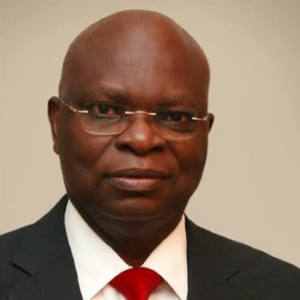 accomplishments. In banking industry, these include Executive Director-Operations and Technology of Ecobank, CEO of a technology focused bank, past President Chartered Institute of Bankers of Nigeria, past President, West African Bankers Association (Nigeria). He was in July 2017 elected as the pioneer Chairman of the Global Council of Global Banking Education Standards Board (GBEStB) a Council made up of thirty founder members professional banking institutes from twenty-eight countries across all continents.
accomplishments. In banking industry, these include Executive Director-Operations and Technology of Ecobank, CEO of a technology focused bank, past President Chartered Institute of Bankers of Nigeria, past President, West African Bankers Association (Nigeria). He was in July 2017 elected as the pioneer Chairman of the Global Council of Global Banking Education Standards Board (GBEStB) a Council made up of thirty founder members professional banking institutes from twenty-eight countries across all continents.
Dr Aina sits on the Board of various institutions in the banking, insurance, agriculture, technology sectors etc in Nigeria and Canada. His foresight and vision of the Financial Technology (FinTech) ecosystem led him to the establishment, about fifteen years ago, of Fintech Associates Ltd of which he is Chairman. Described as Nigerian Fintech Association of Nigeria and currently championing, with some others in the African continent, the creation of African FinTech Council.
Dr Aina is very passionate about education and educational development. He is Chairman of the Advancement Board of Federal University of Technology, Akure; member, Board of University of Ibadan Research Foundation and had previously served as pioneer Board member (2006-2012) of the Obafemi Awolowo University, Ile-Ife Advancement Board. For his contributions to Nigeria’s development in many sectors, he received in 2010 the Nigeria National Honours of the officer of the Order of the Federal Republic (OFR) and had also been awarded honorary doctorate degrees by two Nigerian Universities in recognition of his outstanding contribution to the economy, banking, youth education and community development.
Segun Aina is a distinguished alumnus of University of Lagos, University of Ibadan-Nigeria, Harvard Business School, Boston, USA, INSEAD France, IMD Switzerland, Lagos Business School Nigeria and Fellow of London Institute of Banking and Finance, Chartered Institute of Bankers of Nigeria, Nigerian Institute of Chartered Arbitrators, Institute of Directors, Nigerian Institute of Management, Member, Toronto Region Board of Trade, Canada and Canadian Council for Africa. He is a respected and well sought out opinion leader and speaker in many local and international Conferences and knowledge events.
PROFESSOR SULAIMAN E. BOGORO
MEMBER (FNIAS, FNSAP, FCASN, FFPNO, FSPSP)
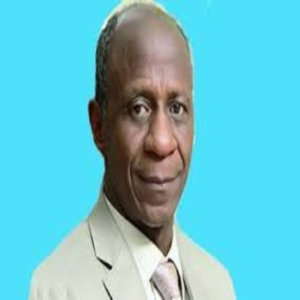 Sulaiman Elias Bogoro is a native of Gwarangah Bogoro LGA, Bauchi. He obtained his Bachelor’s degree in Agriculture in 1981 from the University of Maiduguri, Master’s degree in Animal Science from ABU, Zaria in 1988 and a PhD in Animal Science at the Federal University of Technology, renamed Abubakar Tafawa Balewa University (ATBU) Bauchi in 1997. He was elevated to the rank of Professor of Animal Science (specializing in Biochemistry and Ruminant Nutrition) in 2003. He was appointed as the pioneer Director of the NIMET-supported Agro-Meteorology Centre, ATBU in 2004 and was the Chairman, Governing Council of the Federal Polytechnic, Nekede-Owerri, Imo State from 2005 to 2007.
Sulaiman Elias Bogoro is a native of Gwarangah Bogoro LGA, Bauchi. He obtained his Bachelor’s degree in Agriculture in 1981 from the University of Maiduguri, Master’s degree in Animal Science from ABU, Zaria in 1988 and a PhD in Animal Science at the Federal University of Technology, renamed Abubakar Tafawa Balewa University (ATBU) Bauchi in 1997. He was elevated to the rank of Professor of Animal Science (specializing in Biochemistry and Ruminant Nutrition) in 2003. He was appointed as the pioneer Director of the NIMET-supported Agro-Meteorology Centre, ATBU in 2004 and was the Chairman, Governing Council of the Federal Polytechnic, Nekede-Owerri, Imo State from 2005 to 2007.
Professor Bogoro is a prolific researcher with numerous publications in international and local journals whose versatility has also been projected through his consultancy on and management of international, national and regional projects with the World Bank, UNDP, USAID, DFID, IPCR, OSIWA, NDI, FHI, NACA, and IFES, among others. He has innovated a Rumen Fermentation Model and has developed a Modified Re-entrant Rumen Cannulation Surgical Technique for better understanding and tooling of rumen metabolism for bulls and rams.
His interest in research and development (R&D) made him introduce the Department of R and D in TETFund during his tenure as the Executive Secretary of the agency (2014-2016). This department has been supporting, through the award of improved research grants, the partnership between researchers and industries for applied research and problem-solving innovations. Professor Bogoro recently became a Fellow of the Nigerian Academy of Science as an addition to his enviable Fellowship status, some of which are: Fellow, Nigerian Institute of Animal Science, FNIAS; Fellow, Nigerian Society for Animal Production, FNSAP; Fellow, College of Animal Scientists of Nigeria, FCASN; Fellow, The Federal Polytechnic, Nekede, Owerri, FFPNO; Fellow, The Society for Peace Studies and Practice, FSPSP.
DR SANJANA BHARDWAJ
MEMBER
Dr Sanjana Bhardwaj is currently the Chief of Health for UNICEF, Nigeria. Dr Bhardwaj has over 25 years of![]() experience in the health and development sector in different capacities and roles. She has worked across 17 English speaking countries in the Caribbean and led the child survival and development portfolio for UNICEF in South Africa and also worked and contributed across difference countries, like Papau New Guinea, Barbados, Belize, Trinidad and Tobago and the USA. Dr Bhardwaj’s interests focus on health systems strengthening and the implementation of science in public health. She has led and pioneered the use of data for actionand results in several national programs and also led the design of virtual platforms and tools.
experience in the health and development sector in different capacities and roles. She has worked across 17 English speaking countries in the Caribbean and led the child survival and development portfolio for UNICEF in South Africa and also worked and contributed across difference countries, like Papau New Guinea, Barbados, Belize, Trinidad and Tobago and the USA. Dr Bhardwaj’s interests focus on health systems strengthening and the implementation of science in public health. She has led and pioneered the use of data for actionand results in several national programs and also led the design of virtual platforms and tools.
Sanjana holds an MD in Preventive and Social Medicine from Mumbai University, India; Bachelor of Medicine and Surgery from Nagpur University, India; Master’s in Public Health degree in Health Behaviour from University of Alabama, USA and was recently awarded the Fellowship of the Faculty of Public Health, UK. She has continued to participate in several international and national forums and committees with publications in peer reviewed journals book chapters, training manuals and blogs across a wide range of topics in public health.
FUNKE EGBEMODE
MEMBER
![]() Funke Egbemode, Managing Director/Editor-in Chief of Daily Telegraph Publishing Ltd, publishers of New Telegraph Newspapers and President, Nigeria Guild of Editors (NGE), was born in Osun state. She holds a Bachelor of Arts degree from Obafemi Awolowo University, Ile Ife and Post Graduate Diploma in Journalism from the Nigeria Institute of Journalism, Lagos.
Funke Egbemode, Managing Director/Editor-in Chief of Daily Telegraph Publishing Ltd, publishers of New Telegraph Newspapers and President, Nigeria Guild of Editors (NGE), was born in Osun state. She holds a Bachelor of Arts degree from Obafemi Awolowo University, Ile Ife and Post Graduate Diploma in Journalism from the Nigeria Institute of Journalism, Lagos.
Egbemode started her career as a staff writer in the defunct PRIME PEOPLE magazine. She joined The Punch Newspapers in 1993 until 2000 when she was appointed Editor of The Post Express on Saturday. Since then she has been Associate Editor, This Day, Editor, pioneer Editor of the Saturday Independent. She is the immediate past Editor of The Sunday Sun.
In 20016, she was nominated by the United States Information Service (USIS) to cover the United States of America mid-term elections.
Egbemode has also served in the public sector as Assistant Press Secretary at the Nigerian Tourism Development Corporation, NTDC, Special Adviser (Media) to the Speaker, House of Representatives, and was a member of the Board of the Federal Radio Corporation of Nigeria, FRCN.
Renowned writer and columnist, Egbemode is the author of INTIMATE AFFAIRS and CONVERSATIONS WITH MY COUNTRY.
IFY MALO
MEMBER
Ify Malo is the Country Campaign Director for Power For All in Nigeria. She leads the Nigerian campaign![]() to promote distributed renewable energy in Nigeria and is one of the country’s leading energy access experts. She helped to set up and incubate the Renewable Energy Association of Nigeria (REAN), and has advised a range of government agencies on how best to support market growth, and engaged both the national media, the faith community and donor groups and agencies in the promotion of distributed renewable energy.
to promote distributed renewable energy in Nigeria and is one of the country’s leading energy access experts. She helped to set up and incubate the Renewable Energy Association of Nigeria (REAN), and has advised a range of government agencies on how best to support market growth, and engaged both the national media, the faith community and donor groups and agencies in the promotion of distributed renewable energy.
She is also CEO of Clean Tech Hub and the Energy Innovation Centre, Abuja. She has held Senior Policy Adviser on Energy Policies, Regulations and Partnerships at the Ministry of Power in Nigeria, where she led a number of policy and partnership initiatives for the Nigerian power sector including cultivating and managing relationship with the world Economic Forum and World Energy Council, the Europe Energy African Partnership, The West African Power Industry Convention and the African Utilities Week (AUW). She was also responsible for building, cultivating and driving public private partnership for project delivery and implementation in the power sector. She held similar senior advisory portfolios with the Chairman/CEO of the Nigerian Electricity Regulatory Commission (NERC). Ify’s focus area lies with Global Policy; Project Design and Strategy and Stakeholder partnership initiatives. Ify is a qualified attorney with graduate advance degrees in Law, Business and Public Policy. She is a African Leadership initiative PIA Fellow (2012); A Desmond Tutu Fellow (2013); A Crans Montana News Leaders for Tomorrow Fellow (2014); A Dwight Eisenhower Fellow (2015); Global Leadership Academy Fellow (2017).
DR SAANI ALIYU
MEMBER
![]() Dr Sani Aliyu was appointed as the Director-General of the Nigeria National Agency for the Control of AIDS in July 2016. He graduated from Ahmadu Bello University, Zaria, Nigeria in 1993. He has a postgraduate diploma from the Imperial College and a Master’s with distinction in Microbiology from Queen Mary University of London. He is a fellow of the Royal College of Physicians and the Royal College of Pathologists. After completing residency training at Cambridge University Hospitals in 2007, he worked briefly as consultant microbiologist in Birmingham until 2008 when he returned to Cambridge as the first joint consultant in Infectious Diseases and Microbiology. Dr Aliyu is an associate lecturer at the University of Cambridge and until recently the chair of the U.K Infectious Diseases Specialist Certification Exam Board. Dr Aliyu was the immediate past Caldicott Guardian at Cambridge University Hospitals responsible for Information Governance.
Dr Sani Aliyu was appointed as the Director-General of the Nigeria National Agency for the Control of AIDS in July 2016. He graduated from Ahmadu Bello University, Zaria, Nigeria in 1993. He has a postgraduate diploma from the Imperial College and a Master’s with distinction in Microbiology from Queen Mary University of London. He is a fellow of the Royal College of Physicians and the Royal College of Pathologists. After completing residency training at Cambridge University Hospitals in 2007, he worked briefly as consultant microbiologist in Birmingham until 2008 when he returned to Cambridge as the first joint consultant in Infectious Diseases and Microbiology. Dr Aliyu is an associate lecturer at the University of Cambridge and until recently the chair of the U.K Infectious Diseases Specialist Certification Exam Board. Dr Aliyu was the immediate past Caldicott Guardian at Cambridge University Hospitals responsible for Information Governance.
He is a recipient of the Draper Company prize in Microbiology who has 64 peer-reviewed papers and has co-authored for book chapters on a range of topics on infectious diseases. Locally, he is a vising associate professor of Microbiology at Kaduna State University and a member of the NIMR Research Board. He is a co-investigator on several multi-centre clinical trials including PrEP Demonstration Study in Nigeria. His interests include HIV epidemiology, molecular diagnostics and antimicrobial resistance. As Head of the national HIV agency responsible for coordinating the world’s second largest HIV response, Dr Aliyu’s main priorities over the next couple of years are to establish the true prevalence of HIV in Nigeria, improve the uptake of PMTCT services and secure a sustainable, robust and cost-effective HIV response for the country.
PROFESSOR AYOADE M. J. ODUOLA
MEMBER
Professor Ayoade MJ Oduola is the pioneer Director of the University of Ibadan Research Foundation at![]() the University of Ibadan. He served as Professor and Director at the Postgraduate Institute for Medical Research and Training (now IMPART), College of Medicine, University of Ibadan, Nigeria. He received a World Health Organisations Postdoctoral Training Fellowship in drug discovery at the University of North Carolina, Chapel. He also worked as a US National Research Council (NRC) Fellow as well as an investigator at the Division of Experimental Therapeutics, WRAIR, Washington DC, USA.
the University of Ibadan. He served as Professor and Director at the Postgraduate Institute for Medical Research and Training (now IMPART), College of Medicine, University of Ibadan, Nigeria. He received a World Health Organisations Postdoctoral Training Fellowship in drug discovery at the University of North Carolina, Chapel. He also worked as a US National Research Council (NRC) Fellow as well as an investigator at the Division of Experimental Therapeutics, WRAIR, Washington DC, USA.
He retired as Coordinator for Stewardship and Capacity Building for Research at the Special Program for Research and Training on Tropical Diseases at the World Health Organisation (WHO/TDR). At WHO, he managed and led several research capacity building initiatives including: Creating Regional Training Centres for Bioinformatics in Brazil, South Africa and Thailand; establishment of South-South Initiative for Tropical Diseases Research; organization of a High Level Ministerial Forum for Research on infectious diseases of poverty in Africa; development of TropIKA.net, a web based platform for research information sharing (www.tropika.net). He led a team of over 300 contributors to produce a Global Report for Research Prioritieson Infectious Diseases of Poverty (http://www.who.int/tdr/publications/global_report/en/). He continues to devote efforts to facilitating strategic partnerships between endemic countries and international partners on research and public health initiatives. He has been honoured with many awards. His publications can be accessed at (over 100 listed in PubMed).
PROFILES OF LEADERS OF SPECIAL THEMATIC WORKING GROUPS
PROF. BABATUNDE LAWAL SALAKO
Professor Babatunde Lawal Salako is a seasoned physician, teacher, research and administrator. He is currently the Director-General and Chief Executive Officer of the Nigerian Institute of Medical Research. Before his current appointment, he worked as a Professor of Nephrology at the College of Medicine, University of Ibadan and An Honorary Consultant Physician and a Nephrologist at the University College Hospital, Ibadan, Nigeria. He was the Head of Department of Medicine from 2014 and 2016.
His foray into the world of Medicine began in 1986 when he obtained a Bachelor’s degree in Medicine and Surgery from the University of Ibadan. He later went on to become a Fellow of the West African Postgraduate Medicine College in 1994. He is also a Fellow of the Royal College of Physicians of Edinburgh and London. He has also won many grants to carry out research activities on hypertension.
Professor Salako was the chairman of the Nigerian Medical Association in Oyo State between 2002 and 2004, Editor of the Tropical Journal of Nephrology 2005-2012, Assistant Editor-in-Chief African Journal of Medicine and Medical Sciences and he is currently President of the Nigerian Association of Nephrology. Some of his professional memberships are with the Nigerian Medical Association, Nigerian Association of Nephrology, International Society of Hypertension in Blacks, Scientific Council on Epidemiology and Prevention, Global Forum for Health Research and National Institute of Management, among others.
PROF. OLUWATOYIN A. ODEKU
Oluwatoyin Odeku is a Professor of Pharmaceutics and Pharmaceutics Technology and the Dean of the Faculty of Pharmacy, University of Ibadan, Nigeria. She graduated with a Bachelor of Pharmacy from Obafemi Awolowo University, Ile-Ife, Nigeria in 1988 and obtained her M.Sc. and PhD degrees from the University of Ibadan, Nigeria in 1992 and 1998, respectively. She joined the service of the University of Ibadan as Assistant Lecturer in 1993 and rose to the rank of Professor in 2008. She holds a certificate in Modern Higher Education Management and Leadership from the University of Applied Sciences, Osnabruek, Germany.
Professor Odeku has been a recipient of many awards including UNESCO/Israel Co- Sponsored Post-Doctoral Fellowship, MacArthur Foundation, TWAS Research Grants, DAAD visiting Fellowship Alexander von Humboldt Foundation Fellowships, CV Raman Senior Fellowship, Research Group linkage grant of the Alexander von Humboldt Foundation, and AAU Staff Exchange Award.
She is a registered Pharmacist with the Pharmacists Council of Nigeria (PCN) and a member of the Pharmaceutical Society of Nigeria (PSN), the Organisation for Women in Science for the Developing World (OWSD), the Nigerian Association of Pharmacists in Academia (NAPA) and Association of Lady Pharmacists (ALPs). She is a Fellow of the West African Postgraduate College of Pharmacists (WAPCP) and the West African Research Association (WARA).
PROF. GIDEON OLAJIRE ADEOYE
Gideon Olajire Adeoye was born on the 5th of May, 1945 in Oyo State. He graduated from Obafemi Awolowo University (formerly the University of Ife) with a Bachelor’s degree in Agriculture. He received his Master’s degree in Agronomy in 1980, and later his PhD In 1986. Subsequently, he got employed as Lecturer 1 at the University of Ibadan in 1987 and  became a full professor in 2002. Though retired in 2010, Professor Adeoye, due to his expertise and wealth of experience continued to teach and supervise students’ these at the University of Ibadan until 2018.
became a full professor in 2002. Though retired in 2010, Professor Adeoye, due to his expertise and wealth of experience continued to teach and supervise students’ these at the University of Ibadan until 2018.
He has served in many high level roles such as: Secretary-General of the Soil and Plant Analytical Laboratories Network of Africa, (SPALNA), Chairman, Practical Year Training Program at the Faculty of Agriculture and Forestry, Director of Research and Development at the Olusegun Obasanjo Centre for Organic Agriculture Research and Development (OOCORD). Currently, Professor Adeoye is a co-investigator in two of the University of Ibadan funded mission research on biomass conversion as green and alternative energy mix and also partners with the drug development unit of faculty of Pharmacy to grow indigenous organic herbs.
Professor Adeoye’s contributions to the organic agriculture community have been recognized nationally and internationally. In 2015, he was elected by the Cocoa Foundation to represent Nigeria as the consultant in soil fertility and fertilizer use of the Cocoa Transformation Agenda of the Federal Government of Nigeria Scientific Committee of the (IDH) Sustainable Cocoa Initiatives of World Cocoa Foundation. In 2016, he was named the Organic Champion by the African Union Commission at the 3rd African Organic Fair held in Nigeria.
DR ATTAH-KRAH
Dr Kwesi Atta Krah, a Ghana national, is currently Director, Country Alignment and Systems Integration, at the International Institute of Tropical Agriculture (IITA) – a position he assumed in January 2017. Prior to this, 2013 to December 2016, he was Executive Director of Humidtropics – the CGIAR research program on Integrated Systems for the Humid Tropics, based at IITA Ibadan. Between June 2005 and January 2013, Dr attah-Krah was Deputy Director General of Bioversity International, a CGIAR centre focused on Agriculture Bioversity, based in Rome, Italy. Earlier, he had worked with International Plant Genetic Resources Institute (IPGRI); International Livestock Centre for Africa (ILCA) – now ILRI: and with the International Institute of Tropical Agriculture, IITA.
He holds a BSc. In Crop Science from the University of Ghana, Legon (1977), and M.Sc. and PhD degrees in Agroforestry/Natural Resources Management from the University of Ibadan, Nigeria. His professional interests and expertise span Natural Resources Management, Food Security and Integration Systems Research and management. He has experience in multi-disciplinary and multi-stakeholder research and development processes, for enhanced efficiencies and synergies. Dr Attah-Krah has several publications in technical journals and has contributed to a number of books.
MR OLUSEYE DAVID AWOJOBI, FCIB
Mr Oluseye David Awojobi, FCIB, who was appointed as the Registrar/Chief Executive of The Chartered Institute of Bankers of Nigeria (CIBN) in 2015, obtained his Bachelor’s degree in Banking
Administration from the Olabisi Onabanjo University, Ago Iwoye, Ogun State in 2000 and 2005 respectively. He is currently a doctoral student in Business Administration (Entrepreneurship) at Babcock University, Ilishan, Ogun State. He qualified as an Associate Member of The Chartered Institute of Bankers of Nigeria in 1990 and was elected a Fellow of the Chartered Institute of Bankers of Nigeria in 2008.
Mr Awojobi is a seasoned professional banker who spent a decade of meritorious service in mainstream banking, and he is an astute scholar with many professional memberships, some of which include: Life Member of The Institute of Directors, Nigeria; Associate Member of both Institute of Chartered Mediators & Conciliators and Nigerian Institute of Management (Chartered). Mr Seye Awojobi, an alumnus of the Harvard Business School Executive Education (Authentic Leadership Program), serves as the Secretary, Bankers’ Committee Subcommittee on Ethics and Professionalism for the Nigerian Banking Industry.
He is also a member of the Alliance of African Institutes of Bankers and the Human Capital Development and Information Communication Technology Consultancy Committee of the FSS 2020 Project of the Central Bank of Nigeria. He recently coordinated the formation and successful inauguration of the Global Banking Education Standards Board (GBEStB) as a member of the global taskforce charged with this assignment.
PROF. LANRE OLANIYAN
Olanrewaju Olaniyan is a Professor in the Department of Economics, and the current Director, Centre for Sustainable Development, University of Ibadan, Nigeria. He has over 20 years of research, consulting and tertiary teaching experience in health and population economics, economics of education, poverty and welfare analysis as well as social protection. He also has experience in social policy work in developing countries. He was educated at the University of Ibadan, Nigeria where he obtained Bachelor of Education (B.Ed.) Educational Management and Economics and a PhD in Economics.
Professor Olaniyan has worked on issues of social inclusiveness and demographic dividend in many African countries including Nigeria, Ghana, Kenya and Liberia since 2008. As the team-leader for the National Transfer Accounts (NTA) Research Group of Nigeria, he had, in collaborations with other researchers, estimated the nature and magnitude of demographic dividend in Nigeria.
